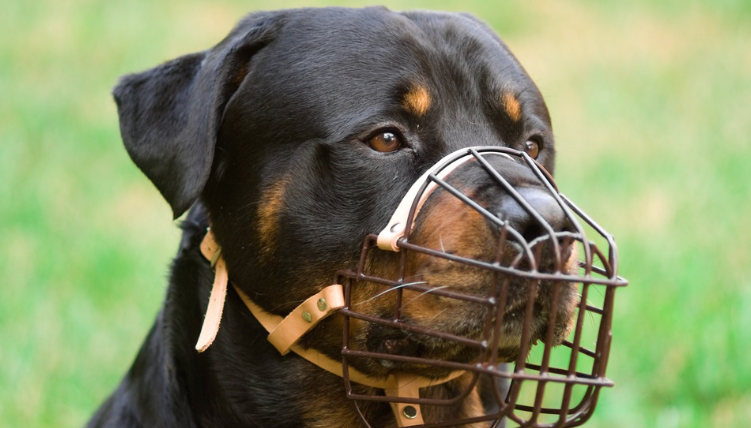CommentsANIMAL WATCH-Two recent horrifying attacks on humans in one month by dogs available for adoption at Los Angeles Animal Services’ shelters -- a Pit Bull (Mugsy) and a German Shepherd (Boss) -- illustrate the critical need for AB 588, signed into law by Governor Gavin Newsom on October 2, 2019.
AB 588 (Animal Shelters - Disclosure - Dog Bites), a bipartisan bill, was introduced by Assemblyman Phillip Chen, who represents the 55th district encompassing parts of Los Angeles, Orange, and San Bernardino counties.
This new law is important to anyone who adopts, or considers adopting, a dog from any animal shelter, humane society or “rescue” group in California and to anyone living in a community where an adopted dog is kept. It mandates that all animal shelters and rescues must tell adopters about known bite history of a dog, and adopters must sign that they have been made aware of that history.
This will help adopters make informed decisions about the dogs they bring into their families, their homes and their communities.
However, the bill does not require disclosure of animal aggression, so it is also important that adopters make this inquiry at the shelter before choosing a new companion.
TEXT OF AB 588 (Chapter 430):
This bill would require an animal shelter, defined to include a public animal control agency or shelter, society for the prevention of cruelty to animals shelter, humane society shelter, or rescue group, that knows, to the best of the knowledge of the shelter or rescue group, that a dog, at the age of 4 months or older, bit a person and broke that person’s skin, thus requiring a state-mandated bite quarantine, before selling, giving away, or otherwise releasing the dog, to disclose in writing to the person to whom the dog is released the dog’s bite history and the circumstances related to the bite.
The bill would require the animal shelter or rescue group to obtain a signed acknowledgment from the person to whom the dog is sold, given away, or transferred that the person has been provided this information about the dog.
PENALTIES UNDER AB 588
A violation of any part of the new law would result in a civil fine not to exceed $500, imposed by the city or county in which the animal shelter or rescue group is located.
The proceeds of that fine would be paid to either the local public animal control agency or shelter or the city or county, depending on whether the violation was committed by a private or public entity.
(Read entire law, Chapter 430, here.)
RISKS OF ADOPTING A DOG WITH A BITE HISTORY
"Strict Liability" Dog Bite State
California is a "strict liability" state for dog bites. Under Section 3342 of the Civil Code, the owner -- which will be you if you adopt the dog -- is immediately responsible for all damages resulting from a dog bite which occurs while the victim is in a public place or in a private place where he/she is lawfully allowed (The exception is if someone is trespassing. They may not be able to collect damages.).
How Long Does a Dog Bite Victim Have to File a Lawsuit?
Each state has a statute of limitation which places a deadline on personal-injury lawsuits filed in the civil court system. Under California's statute of limitations, the deadline is two years after the bite occurs.
(Personal-injury lawsuits against a City/county agency in CA also have a legal requirement that a claim must first be filed within six months of the incident, to try to reach a settlement prior to filing a lawsuit in court.)
PUBLIC AND PETS MUST BE PROTECTED
Currently, shelters ask on their intake form whether the dog has bitten someone. It appears this new law will make it mandatory not only for shelters and humane societies but also for rescuers to include in their intake questions for every dog whether it has bitten someone and to record their response on the form.
The basic philosophy of "No Kill," is that no dog should be euthanized if it can be "rehabilitated" and every dog deserves a second (or third) chance. Aggressive or vicious behavior is commonly explained as the dog being mistreated or "misunderstood."
AB 855 could change that by placing the direct responsibility for future damages by the dog with the shelter or "rescue." Often rescue groups specialize in taking dogs that have attacked and serve as a depository, so the shelter does not have to euthanize an aggressive dog and jeopardize its "No Kill" statistics.
AB 588 -- A CARING AND RESPONSIBLE BILL
Assemblyman Phillip Chen, the California State Legislature and Governor Newsom have made a bold move for public and pet safety and assuring adopters receive full disclosure of any known dangers when they bring a homeless animal into their lives.
This is not a matter of if a dog with a history of bites or attacks will bite again, but when. The risk is too great. There are far too many dogs that do NOT have violent or unpredictable behavioral histories that are being kept in overcrowded and unhealthy shelter / “rescue” conditions because space is being used for animals that have proven they bite the hand that feeds them -- or, worse!
Related:
'Fostered' Pit Bull Attacks Wife of Los Angeles Drummer / Instructor Noel Jasso
LA Animal Services: Pit Bull with a Violent History Attacks Potential Adopter … What Did We Learn?
Do CA Animal Shelters and Rescues have a Right to Release Dangerous Dogs?
(Phyllis M. Daugherty is a former City of Los Angeles employee and a contributor to CityWatch.) Photo: Edited for CityWatch by Linda Abrams.





